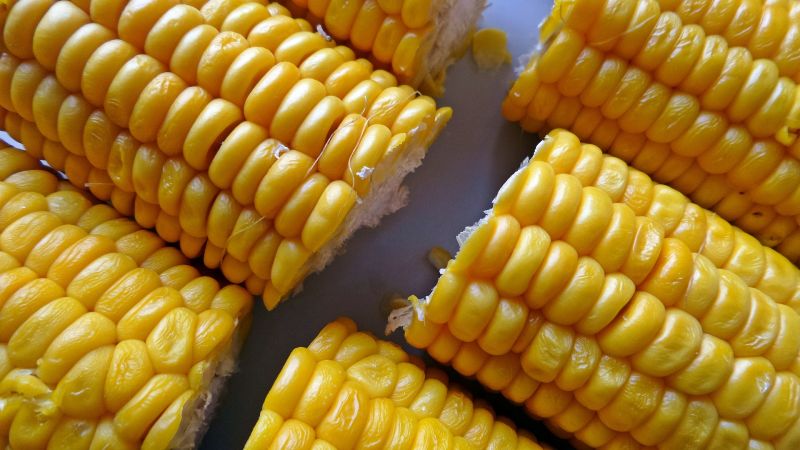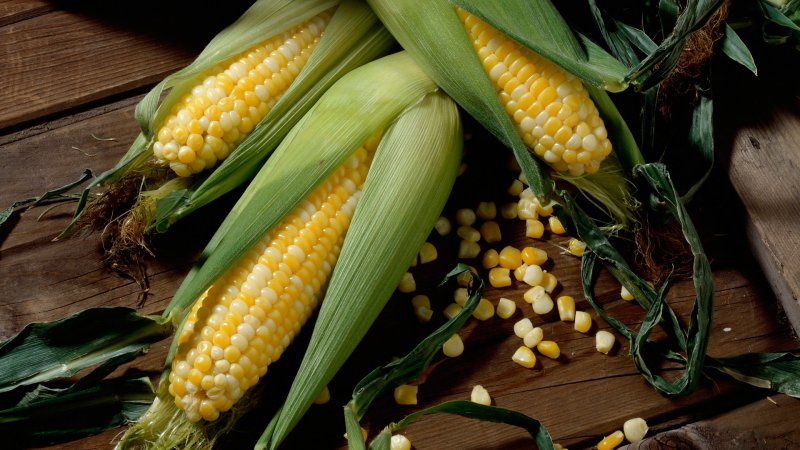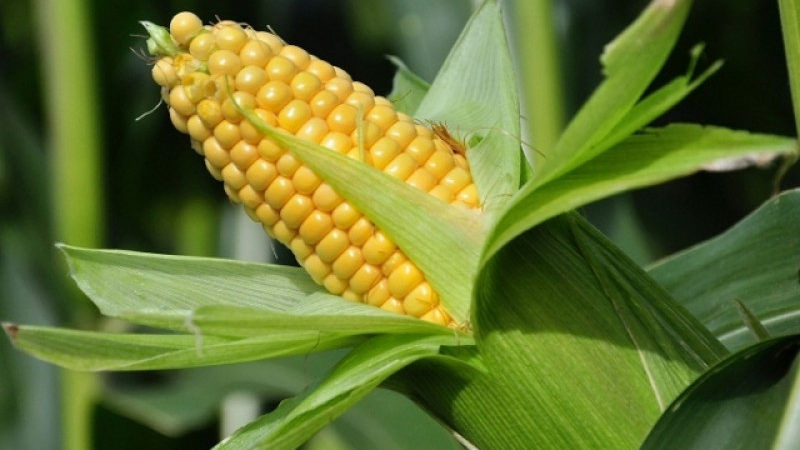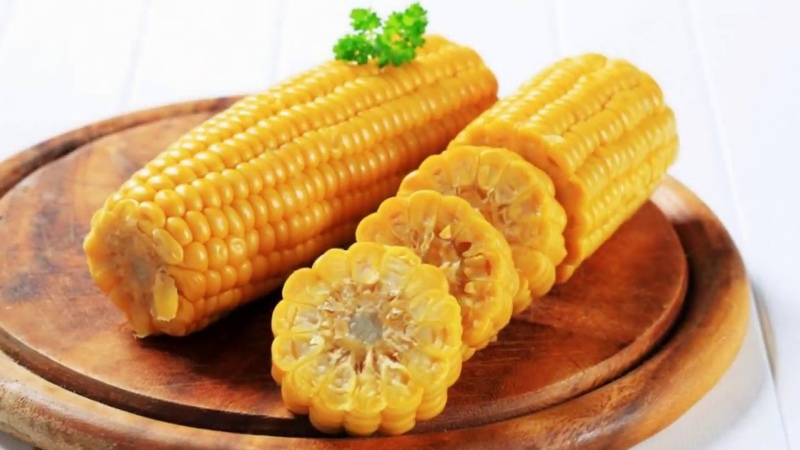Is it possible to eat raw corn: the benefits and harms of fresh vegetables, possible contraindications
Corn - one of the products with which we associate hot summer. Its value lies in its rich chemical composition and preservation of taste after heat treatment. Many people know how boiled corn is useful. What about raw cobs? In this article we will tell you whether you can eat fresh corn and what effect it has on the body of children, women and men.
The content of the article
Can I eat corn raw?
In recent years, interest in proper nutrition, including raw food, has increased several times. Adherents of a healthy lifestyle unanimously argue that heat treatment kills nutrients, making the product useless for the human body.
 In childhood, without knowing it, we were engaged in nothing more than a raw food diet, running to corn fields for young cobs and not thinking about how our stomachs would react to it.
In childhood, without knowing it, we were engaged in nothing more than a raw food diet, running to corn fields for young cobs and not thinking about how our stomachs would react to it.
According to nutritionists, are suitable for safe consumption sugar varieties low in starch. Raw corn is great for filling and helping to restore the balance of nutrients and vitamins.
reference... Fresh grains contain a lot of ascorbic acid, which, unfortunately, is destroyed by more than 50% during heat treatment.
Young ears with grains of the so-called milk maturity are suitable for eating. Such a product is easier to digest and practically does not cause a negative reaction from the gastrointestinal tract.
Ripe cobs with hard grains are undesirable to eat raw. Coarse fiber is poorly absorbed, causing bloating and diarrhea.
Benefits for the body
When used correctly, raw corn only benefits the body:
- Cleanses the intestines thanks to its high fiber content.
- Helps to improve the functioning of the gallbladder and metabolism.
- Eliminates flatulence and heaviness in the stomach.
- Fills the skin with moisture at the cellular level.
- Reduces sugar cravings and normalizes blood sugar levels.
- Removes harmful cholesterol.
- Reduces the risk of developing atherosclerosis, diseases of the heart, blood vessels, intestines and liver.
- Dissolves kidney stones and relieves inflammation.
- Normalizes the work of the cardiovascular system due to the content of unsaturated fatty acids.
- Gives a boost of energy, relieves fatigue.
- Relieves hangovers thanks to selenium, which helps to remove waste products from alcohol and digest heavy foods.
- Strengthens the immune system.
- Slows down the aging of the body.
- Carotenoids improve visual function.
- Relieves gum inflammation.
- Reduces the risk of bowel cancer.

reference... Most of the vitamins and minerals can be obtained from the cobs of milk maturity. They contain glutamic acid, which is beneficial for people doing intellectual work. Glutamine has a positive effect on the brain, improves memory and activates thought processes.
What is useful for women, men and children
Fresh corn kernels can help relieve toxicosis in early pregnancy and increase breast milk production.
Vitamin E increases fertility (the ability to conceive), alleviates PMS discomfort, and improves the condition of the skin, hair and nails.
Males will appreciate the beneficial effects of raw corn on the genitourinary system. Active substances increase potency and relieve inflammation.
Doctors do not recommend giving raw corn to children because of the risk of causing harm fragile gastrointestinal tract. From six months, you can gradually introduce corn into the diet in the form of cereals and soups. From the age of two, it is allowed to eat one boiled cob a day. Corn is rich in vitamin D, which is necessary for the growing body to prevent rickets. Vitamin C helps fight viral infections.

Characteristics of corn on the cob
Raw corn cobs contain 14 g of water per 100 g. Due to this, young grains have a delicate taste and juiciness. Polysaccharides help cleanse the intestines of toxins, and the rich chemical composition saturates the body with useful substances.
Chemical composition and nutritional value
Corn cobs contain:
- vitamins (groups B, C, D, E, H, PP);
- amino acids (tyrosine, lysine, choline, glycine);
- macronutrients (potassium, copper, fluorine, zinc, calcium, iodine, phosphorus);
- trace elements (selenium, manganese, iron, barium, boron, gold, aluminum).
Nutrients are contained in 100 g of the product:
- proteins - 10.3 g;
- fats - 4.9 g;
- carbohydrates - 60 g.
The calorie content of raw corn is 86 kcal per 100 g.
When and how to eat
Nutritionists recommend eating raw corn for lunch. Its low protein content makes it unsuitable for breakfast, and its high carbohydrate content makes it difficult to eat for dinner.
This principle is advised to be observed by people trying to lose weight, and excess carbohydrates in the evening will certainly end up on the stomach and hips.
Potential harm and dangerous properties

People suffering from diseases of the digestive tract, especially at the stage of exacerbation, should consult a doctor before starting to feast on raw cobs. Such grains take longer and harder to digest, which leads to increased gas production and discomfort in the intestines.
Important! Genetically modified corn has a negative impact on human health and often causes allergies.
Contraindications
Raw corn is banned when:
- blood clotting disorder;
- obesity;
- anorexia (the product contains substances that suppress appetite);
- exacerbation of gastritis and stomach ulcers;
- allergies.
Storage conditions and periods
To preserve the corn on the cob for the winter, use the freezing method. Fresh cobs are stored in the refrigerator for no more than three days, and frozen ones - 3-4 months.
Pick young corn, tear off leaves, remove fibers. Wrap each ear with cling film and place in the freezer. After defrosting, the product is edible both raw and cooked. There are many recipes for corn dishes, so everyone will find the most suitable cooking option for themselves.
Conclusion
Raw corn, when used correctly, has a positive effect on the human body. Due to its high energy value, it perfectly saturates, and its rich component composition allows you to replenish the supply of vitamins and minerals.
The product is perfectly stored frozen and does not lose its beneficial properties after thawing. You can talk about the benefits and harms for health for a long time, the main thing is to observe the measure in use and listen to the reactions of the body.